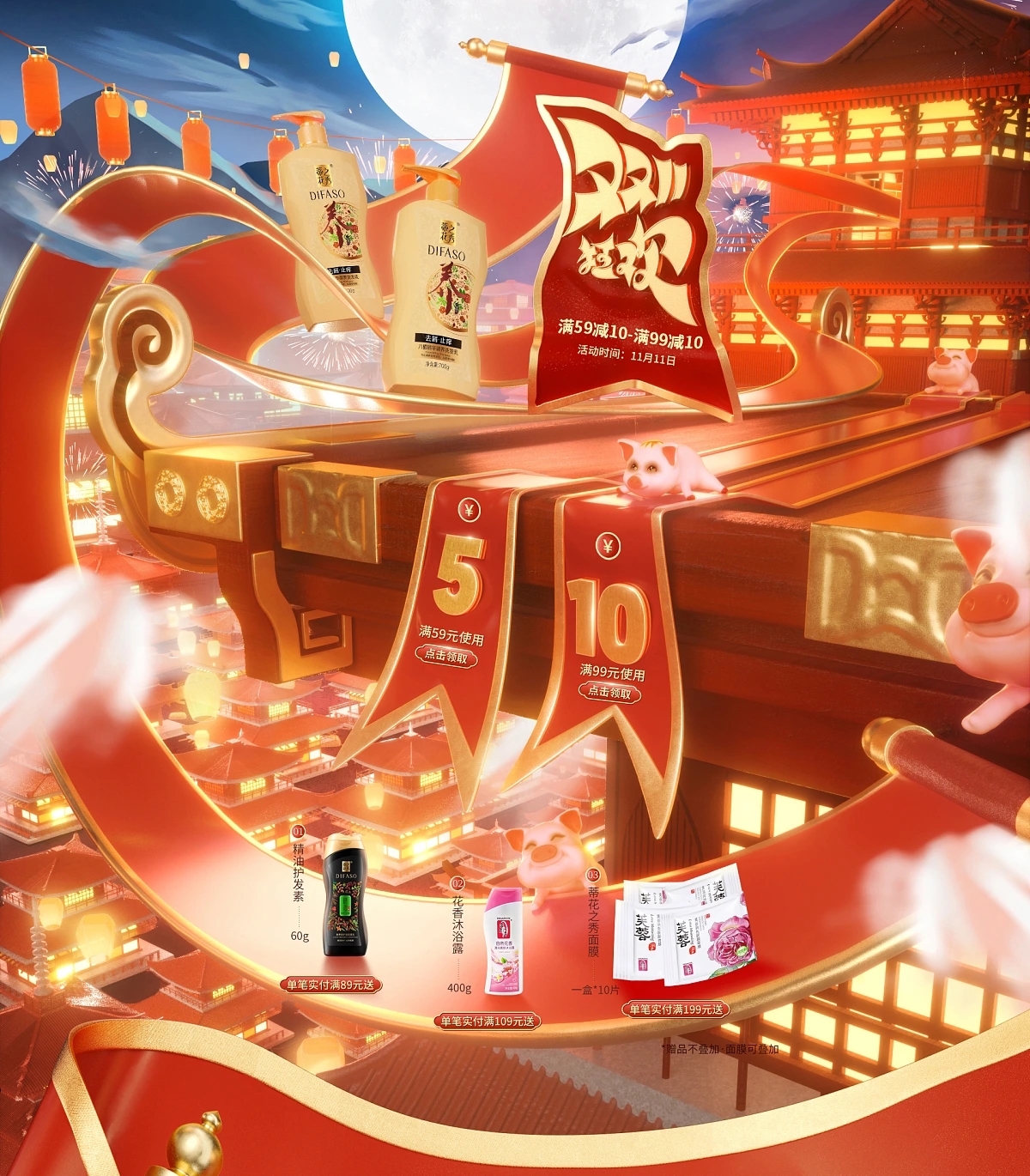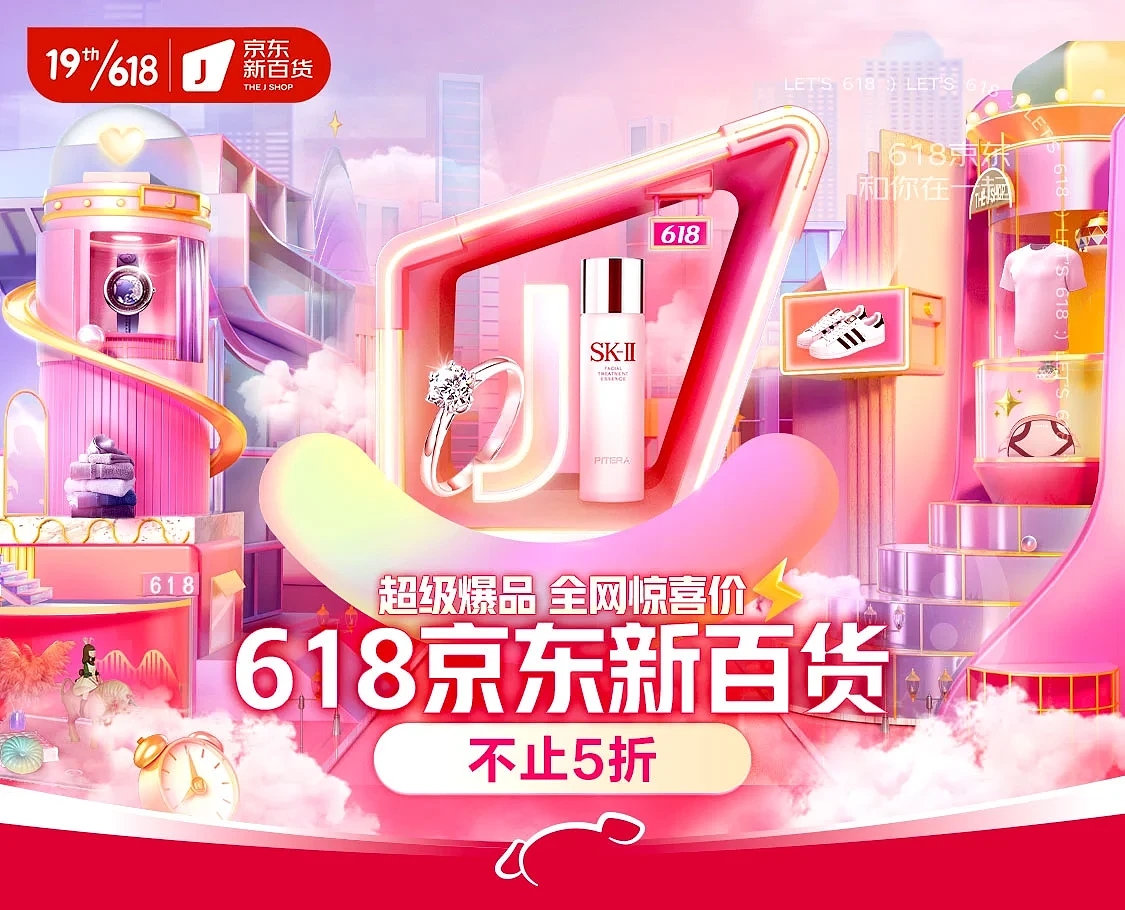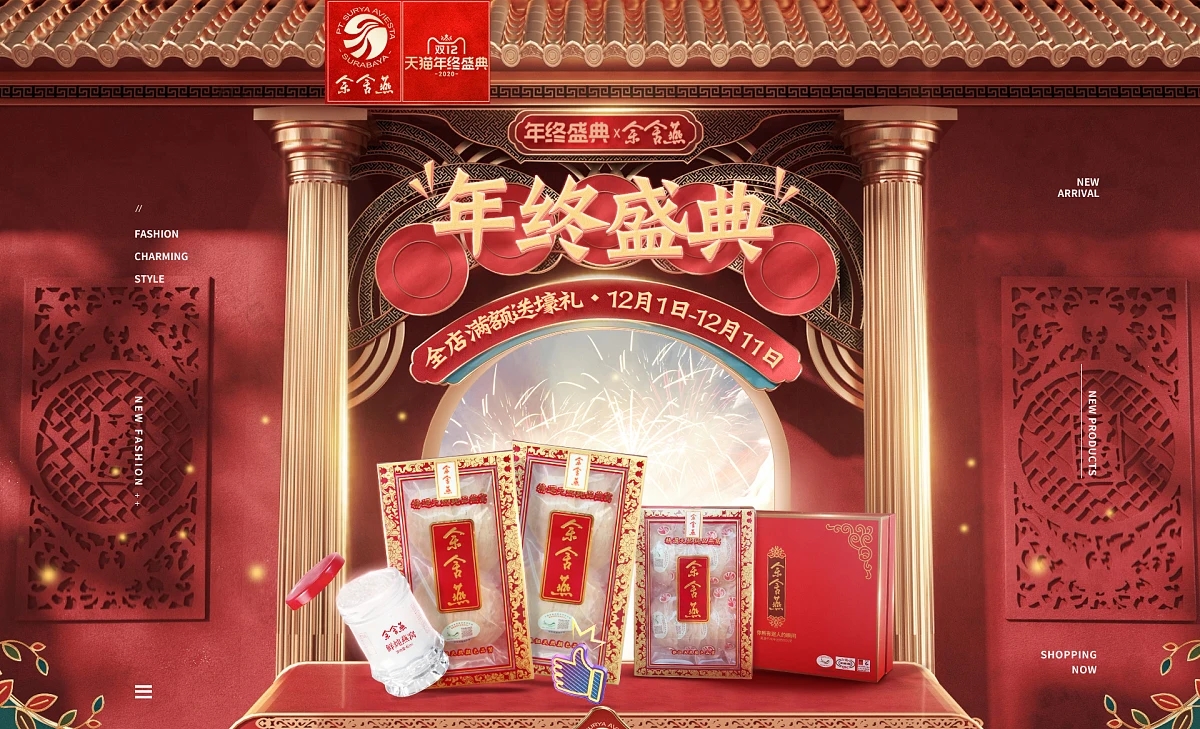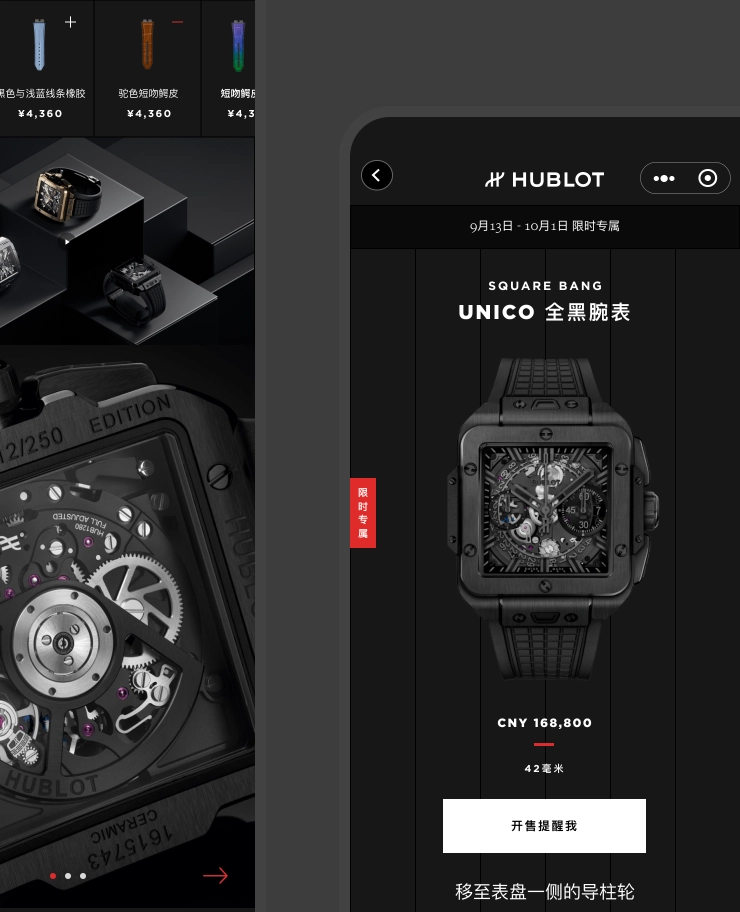12 Top Ecommerce Shopping Festivals In China You Should Know
October 23rd, 2023 · Written by Zippora Lau

Contents
In China, shopping has transcended the mundane and evolved into a cultural phenomenon. While Americans are familiar with shopping holidays like Black Friday and Cyber Monday, they pale compared to massive, intricately orchestrated shopping extravaganzas that swipe the country multiple times yearly.
This is the new face of retail in China - a series of highly engineered, uniquely Chinese shopping festivals injected with cultural tradition, celebrity hype, and deals so irresistible they drive record-smashing sales faster than you can say "Add to cart!"
Singles Day, 818 Discover Good Things Festival, 618 Mid Year Shopping Event, and many more keep hundreds of millions of Chinese consumers glued to the screens of their devices, high on shopping adrenaline, riding catastrophic waves of markdowns across the Middle Kingdom.
They are explosive collisions of traditional Chinese culture, inevitable globalization, and an innovative digital economy. In this blog, we look under the hood of these monster shopping festivals powering China's e-commerce empire - their origins, evolution, and tips for brands looking to harness these retail phenomena.
11:11 Singles Day (November 11th)
China's largest and most popular e-commerce festival, 11.11 Singles' Day, makes Black Friday look boring. Born in the 1990s as an anti-Valentine’s day at universities, Alibaba converted November 11th (11/11) into a 24-hour shop-til-you-drop extravaganza in 2009. The name comes from the date’s four repeating singles – but there’s nothing single about the sales.
Alibaba is yet to disclose its sales for 2022, but a year before it generated over $84 billion in sales in just 24 hours on 11.11, crushing their previous records.
Hard to believe, but the first 11.11 started small - just 27 merchants participated in the first sale in 2009, trying to raise awareness about the potential of online shopping. Last year 11.11 featured over 290,000 brands from over 90 countries and regions across 7,000 product categories.
-
Over 70% of purchases happen on mobile devices. Apps and websites need to be optimized for the traffic surge.
-
Major promotion campaigns start weeks in advance across digital channels, building up the 11:11 shopping frenzy.
-
The event has become a highlight of modern Chinese culture. Sitting out 11.11 amazing deals would be unthinkable.
Tmall has announced their 2023 Double Eleven promotions will kick off at 8 pm Beijing time on October 24th.
This year, Tmall is putting historic emphasis on offering consumers rock-bottom prices, with the slogan "The Lowest Prices Across the Internet."
Shoppers can expect steeper discounts and promotions compared to past 11.11 events. Tmall is also introducing a first-of-its-kind PriceProtection service to ensure consumers get the best deals.

618 Mid Year Shopping Festival (June 18th)
The 618 Mid-Year Shopping Festival, the country's second-largest e-commerce extravaganza, is a formidable contender for Singles Day.
Kicking off on June 1st and climaxing on June 18th, 618 transforms China's online retail landscape into a summer carnival of riotous promotions, flash sale fever, and record-shattering discounts. This 18-day spending spree got its name from June 18th - the anniversary of Chinese e-commerce giant JD.com. The numbers also sound similar to the Chinese phrase for "will be successful."
JD birthed the festival in 2010 to boost mid-year sales, and other retailers quickly jumped on the bandwagon. Today, over 200,000 brands offer irresistible discounts to tap into consumers' summer shopping mood. Appliances, electronics, fashion, and beauty products are hot sellers during 618 as Chinese consumers splash out on self-gifts and early holiday deals.
According to Syntun Data, 618 generated $110.5 billion in 2023.
Spring Festival (Chinese New Year)
Chinese New Year is based on the lunar calendar, so the date varies each year. In 2024, the Chinese New Year falls on February 10th.
The weeks surrounding the Spring Festival and Chinese New Year become a joyous shopping season as Chinese families purchase symbolic gifts, new clothes, and celebratory goods. Big sellers also include festive items like decorations, flowers, food gifts, and travel deals to accommodate visiting families.
Stemming from ancient traditions, the Spring Festival period has become heavily commercialized. Chinese e-commerce giants have turned this traditional holiday into a primetime for major promotions across all product categories.
Spring Festival represents a massive opportunity for brands to boost sales by tailoring marketing towards Chinese New Year motifs and traditions. With families gathered, and consumer wallets loosened, the Lunar New Year period is a prime time to connect with consumers in a celebratory spirit.
Douyin 818 Discover Good Things Festival
The meteoric rise of the Chinese short video app Douyin has given birth to a new e-commerce phenomenon - the Douyin 818 Discover Good Things shopping festival.
Launched in 2021, the August 18th festival (8/18) leverages Douyin's massive influence among over 743 million daily users. It focuses on “discovering” and “supporting” products from smaller merchants and niche brands.
Shoppable video streams let viewers purchase featured products in real-time during live streams. Influencer recommendations drive interest and sales, especially among Douyin's young users. The focus is on creative, emerging brands rather than major mega-brands on rival platforms.
For brands interested in leveraging short video commerce, Douyin 818 represents the perfect opportunity. Work with influencers to showcase products via Douyin and make items shoppable within video streams during the festival. Utilize creative digital marketing tailored to Douyin users.
Chinese Valentine's Day (Qixi)
While February 14th is Valentine’s Day in the West, China’s lovers celebrate the Qixi Festival, which falls on the 7th day of the 7th lunar month, usually in August.
Stemming from a romantic Chinese folktale, Qixi has evolved into a major shopping holiday for couples, family, and friends to exchange gifts and well-wishes.
Jewelry, flowers, electronics, fashion, and beauty gifts are top sellers during the festival. Brands commonly offer Valentine’s Day-style promotions encouraging romantic purchases. Gifting both in-person and online is a major way Chinese couples celebrate their love on Qixi.
520 "I Love You" Day (May 20th)
The 520 "I Love You" Day shopping festival in China takes place each year on May 20th and has become one of the biggest online shopping days. The numbers 5-2-0 in Chinese sound similar to the phrase "I love you," which is how this festival got its name.
This modern festival was created around 2010 when Chinese retailers began promoting May 20th as a new shopping holiday for couples to buy each other gifts. It has quickly become an enormous sales event, especially for e-commerce companies.
Diamond rings and jewelry are among the most popular items purchased as gifts for your loved one. Many luxury brands offer special 520 deals. Romantic getaways and travel deals are also hot sellers. Electronics and smartphones are top-selling categories as many gifters opt for practical gifts for their special someone. Popular deals include the newest phones, laptops, and tablets.
The Mid-Autumn Festival
The Mid-Autumn Festival is one of the most important festivals in China, taking place on the 15th day of the 8th lunar month, typically sometime between early September and early October.
Today, the Mid-Autumn Festival has become a significant shopping season for retailers. Since families traditionally gather to celebrate this festival, gifting is extremely popular. Everything from mooncakes to tea to home decor sees boosted sales.
Mooncakes remain the most iconic purchase, with most major brands offering special mooncake boxes with various flavors. Specialty Chinese teas and nostalgic snacks are common online purchases to serve family and guests.
"Golden" Week Sales
China's annual “Golden Week” is a week-long national holiday that was introduced in 2000 and takes place around October 1st for National Day. The Golden Week may be eight days long if the Mid-Autumn Festival is near National Day. This holiday week has now become one of the biggest shopping periods of the year in China.
Hundreds of retailers offer sales, deals, and promotions to tap into holiday spending during Golden Week. With many people traveling and families reuniting during the 7-day break, gifts and new purchases for the trips are extremely popular.
Travel, tourism, and hospitality see some of the biggest revenue; however, e-commerce sales also surge during the holidays.
Popular e-commerce purchases include fashion and apparel for trips and family gatherings, electronics, cosmetics, appliances, and automotive accessories. Travel-related products are hot sellers during the holiday week. Luggage, travel accessories, and camping/outdoor gear see boosted sales.
Luxury brands and jewelers offer Golden Week promotions to align with gifting for families, especially the older generation. The top categories are jewelry, watches, and handbags.
Women’s Day (March 8th)
While International Women's Day on March 8th is widely celebrated globally, retailers in China have turned it into yet another major shopping festival with massive promotions and deals.
The origins of Women's Day trace back over 100 years as a day to recognize women's achievements and fight for gender equality. In China, the first Women's Day was celebrated in 1922. Today, March 8th has evolved into an occasion for men to express love and appreciation for the women in their lives.
Flowers, especially roses, see massive sales spikes leading up to March 8th in China, with men gifting blooms to wives, girlfriends, mothers, and daughters. Flower sales jump 80% annually.
Department stores highlight promotions on cosmetics, handbags, clothing, and lingerie around March 8th. Jewelry also sells well, with retailers promoting diamonds and pearls for women. Luxury brands offer exclusive Women's Day deals.
Men’s Festival (April 24-26)
The Men's Festival was launched in the 2010s and led by e-commerce giant Alibaba as a new shopping occasion centered around men. Retailers created a modern shopping festival to mirror the March 8th holiday. Taking place on April 24-26, brands use this period to market men's products and target male shoppers.
Fashion and beauty retailers highlight men's clothing, accessories, grooming supplies, and fragrances. Luxury brands offer Men's Festival deals on watches, leather goods, menswear, shoes, and jewelry.
Electronics and gadgets are promoted as gift ideas for men during this period. Top sellers are phones, smart watches, speakers, gaming gear, and drones.
Mother’s Day (the 2nd Sunday in May)

Mother's Day is a popular modern holiday imported from the West that falls on the second Sunday of May each year. It has quickly caught on in China as a day to honor mothers with gifts and quality time.
Flowers, jewelry, handbags, makeup, perfumes, and other products women favor see increased sales today.
Restaurants, bakeries, and other food retailers offer Mother’s Day brunches, cakes, and deals on dining packages.
Children’s Day (June 1st)
Children's Day in China is celebrated on June 1st every year and has become an occasion for parents and grandparents to spoil kids with gifts. Major retailers now capitalize on Children's Day promotions, specifically targeting toys, apparel, technology, and entertainment for kids.
Double 12 - End Of The Year Shopping Festival

The 12.12 shopping festival in China occurs between December 8th and 12th each year and is the final major shopping event before the holidays.
Originally started in 2009, 12.12 was conceived as an additional sales day for smaller brands that may have missed out on Singles Day promotions. It takes place about six weeks before Chinese New Year, giving ample time for gift purchases.
Today, many brands combine their 11:11 and double 12 efforts, turning it into a never-ending stream of tempting deals for everything from food to luxury items. With its strategic pre-holiday timing, 12.12 has cemented itself as a retail fixture in China - a final burst of massive online spending heading into the gift-giving season.
Tips for Brands to Leverage China's Shopping Festivals
China's massive shopping festivals present great opportunities for brands to drive sales. However, thoughtful planning and marketing are needed to capitalize on these retail events fully.
-
Prepare early
Have marketing campaigns and inventory ready to go weeks in advance. Forecast demand and stock up to avoid shortages. -
Offer strategic discounts
Provide exclusive deals and bundles tailored to each festival. -
Localize marketing
Personalize branding and offers to align with cultural traditions and meaning behind each holiday. -
Activate social media
Participate in viral social campaigns and influencer promotions on Chinese platforms like Weibo. -
Embrace livestreaming
Let influencers showcase products in real time. Livestreaming converts exceptionally well. -
Offer limited edition products
Create special festival collections or bundles only available during the event. Scarcity builds hype. -
Highlight gifting options
Promote your products as gift ideas and offer festive packaging like red boxes for the Lunar New Year. -
Cross-promote festivals
Advertise Mother's Day deals to male shoppers or Valentine's Day gifts for women. -
Partner with influencers
Collaborate with KOLs in multiple tiers for maximum impact during the festivals. -
Highlight scarcity
Use countdown timers and limited supply messaging to prompt impulse purchases. -
Optimize for mobile
Ensure seamless mobile e-commerce experiences. Over 85% of Chinese consumers shop on smartphones.
Have a project in mind?
Join our newsletter!
Get valuable insights on the latest digital trends, strategies, and developments in China and globally delivered straight to your inbox.

